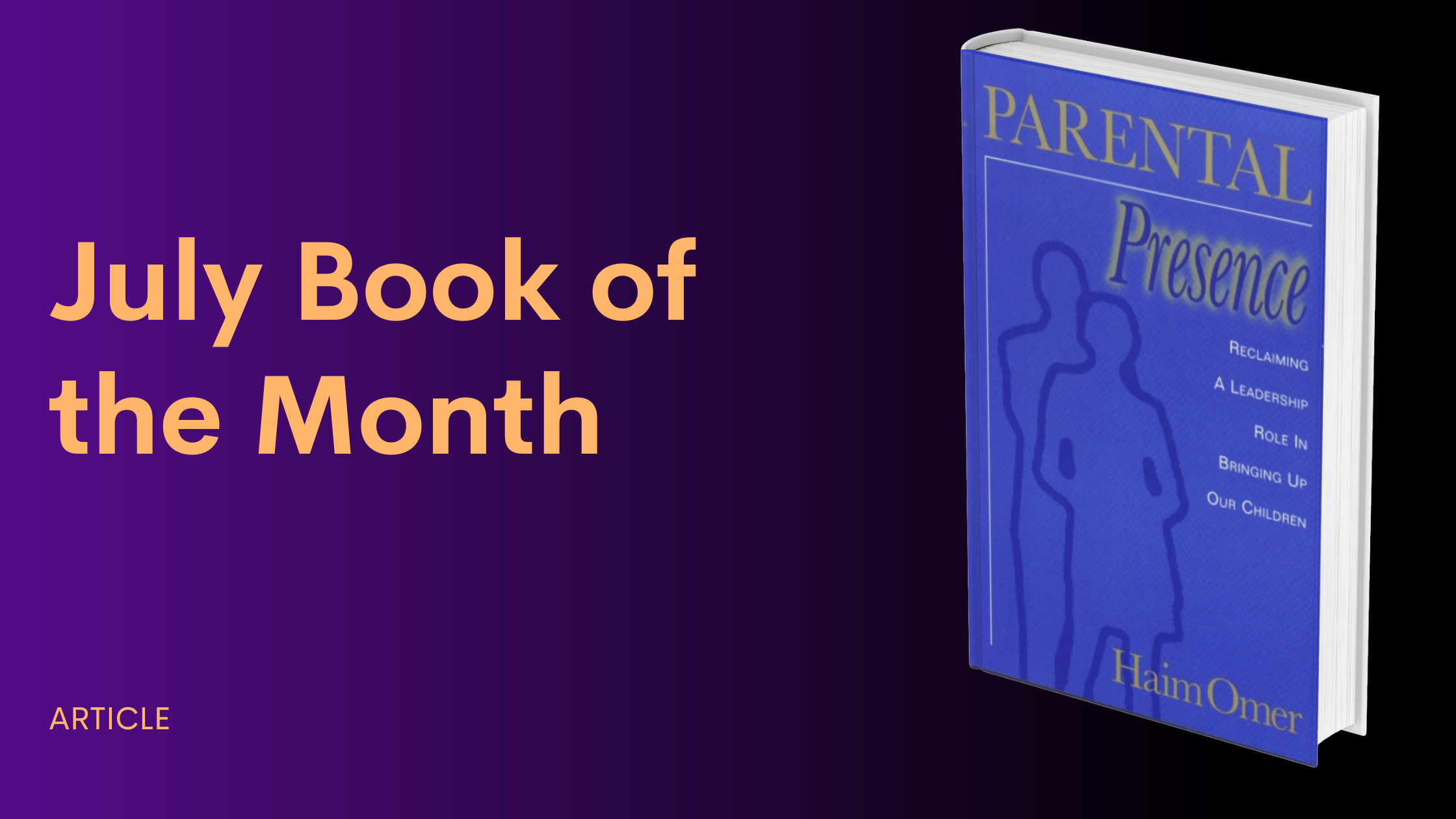July Book of the Month
When ‘Parental Presence’ is the Intervention
If you ever work with parents that are exhausted, heartbroken, and overwhelmed, wondering how their once-sweet child became unreachable, then Parental Presence is a book worth having on your shelf. Rather than swinging between being too soft or too strict, Haim Omer offers parents a different path…one that’s rooted in calm and steady engagement.
Omer is a clinical psychologist and the founder of the Non-Violent Resistance (NVR) model. The NVR model is a therapeutic approach that helps parents respond to escalating behavior without resorting to threats, bribes, or force. Instead of trying to control the child, NVR focuses on building the parent’s presence through persistence, strategic support, and visible care.
In Parental Presence, Omer writes with a deep understanding of the chaos that can unfold behind closed doors in families. The book includes case examples that feature challenges like defiant teenagers, anxious children who refuse school, and single parents who feel they have run out of options. Rather than offering a framework alone, the book also walks readers through what its ideas look like in motion, inside real homes.
In one case, a family used a series of therapeutic letters, a written contract, and a coordinated sit-in with extended relatives to reestablish contact with a withdrawn teenager who had stopped speaking and eating with his parents. This approach enabled the family to remain emotionally engaged, while pacing their actions in a way that gradually encouraged the teen to begin interacting with them again. In a different example, a parent used a structured “bear hug” to safely contain a younger child during a tantrum. This created a clearer boundary between them and helped reduce the intensity and frequency of the child’s outbursts. These interventions demonstrate how parents can regain a sense of leadership by staying steady rather than being reactive.
In another case, a young boy named Erez was becoming increasingly aggressive at home and in school. His parents, anxious and unsure how to respond without escalating the situation, began working with Omer to involve others in a supportive but non-intrusive way. A teacher, a neighbor, and several relatives were invited to quietly reinforce the family’s efforts. The teacher sent a short note home expressing encouragement for the parents’ actions, while the neighbor stopped by to offer a few kind words about the changes taking place. These gestures did not challenge or confront Erez directly. Instead, they made the parents’ new stance more visible and harder to dismiss. Omer explains that when a child sees their parents being supported in this way, it quietly rebalances the dynamic…and it transforms the parent from an isolated figure into someone backed by a broader network. That shift can begin to reduce the child’s sense of control and resistance, while reinforcing the parent’s authority in a calm, relational way.
Although Omer doesn’t explicitly frame his approach in Ericksonian terms, echoes of that tradition run throughout his work. In his 1982 paper, The Macrodynamics of Ericksonian Therapy, he focused less on the technical details of trance or suggestion and more on broader strategies and the outcomes they create in therapy. He suggested that meaningful change depends on the therapist’s ability to hold the client’s attention, sustain emotional engagement, and introduce small, well-timed disruptions that prevent familiar patterns from taking over.
These ideas surface again in Parental Presence, where Omer moves beyond individual insight or behavioral directives: he teaches parents to influence the emotional climate of the household by adjusting how they act in charged moments. Omer brings Ericksonian ideas into the disarray of family life, where his goal is to understand what needs to shift and to support parents as they begin making those changes.
The bottom line: Parental Presence offers a reminder that meaningful change begins not with control but with connection. It is presence, not power, that helps families heal.


